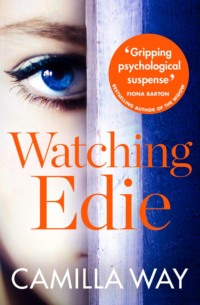Watching Edie: The most unsettling psychological thriller you’ll read this year

Добавить В библиотекуАвторизуйтесь, чтобы добавить
Добавить отзывДобавить цитату
Watching Edie: The most unsettling psychological thriller you’ll read this year
Вы ознакомились с фрагментом книги.
Для бесплатного чтения открыта только часть текста.
Приобретайте полный текст книги у нашего партнера:
Всего 10 форматов
Авторизация